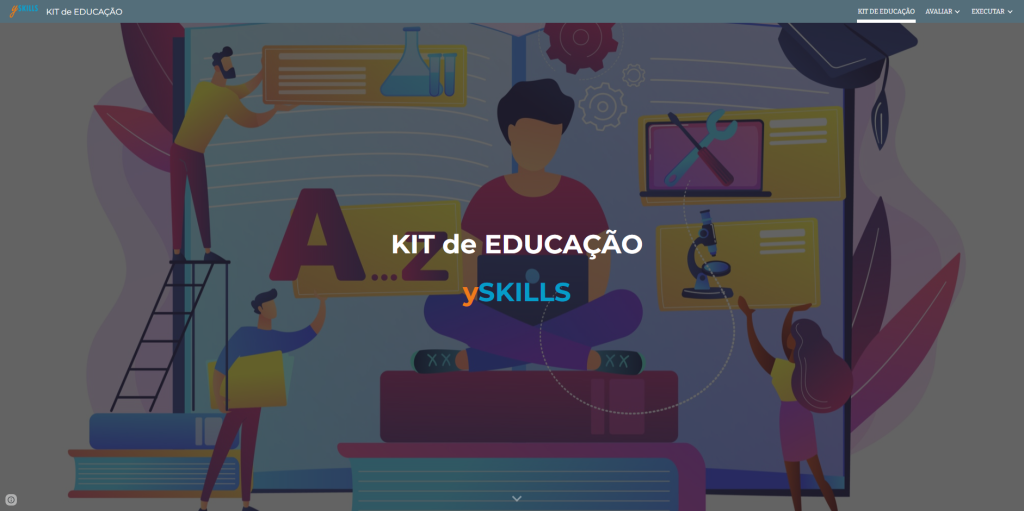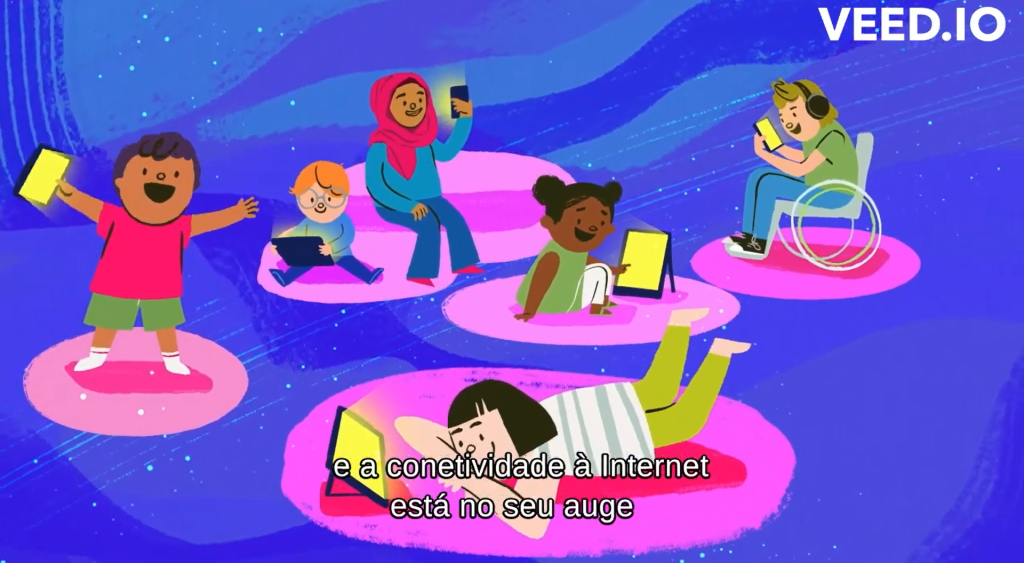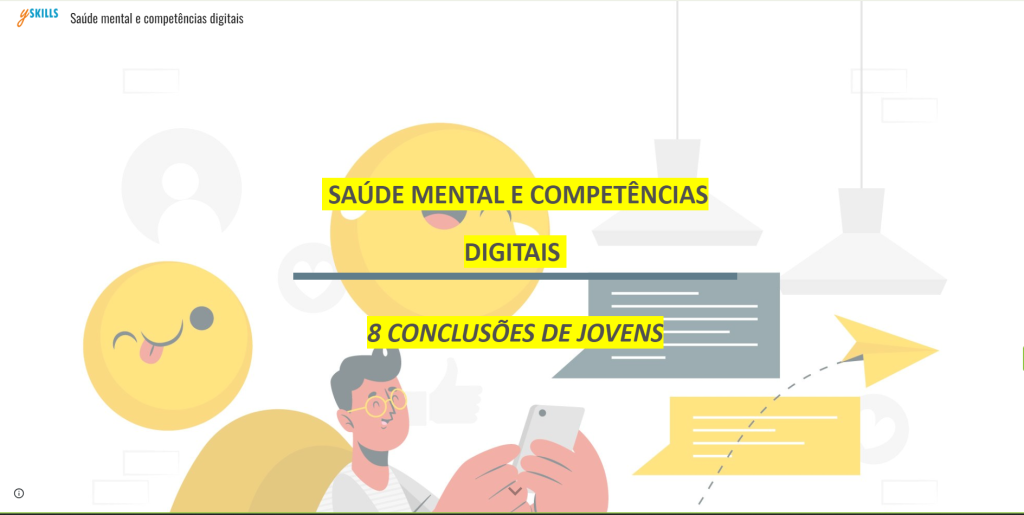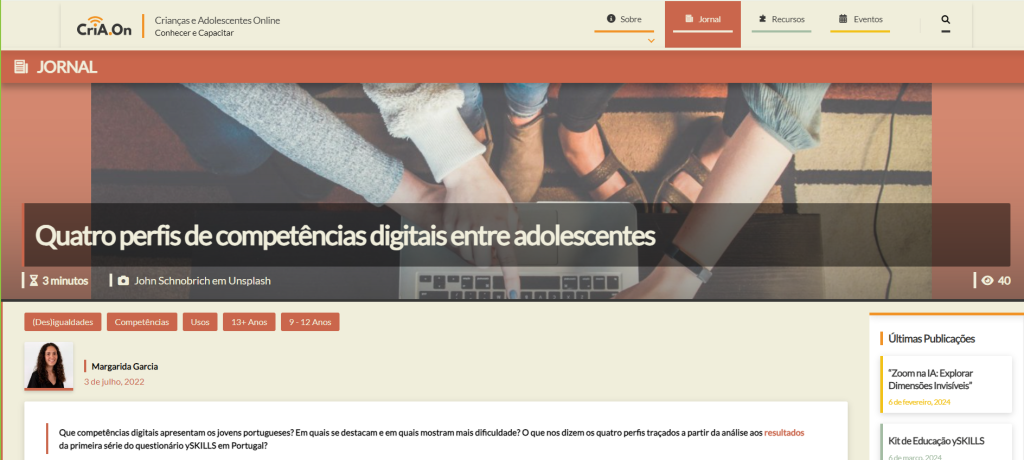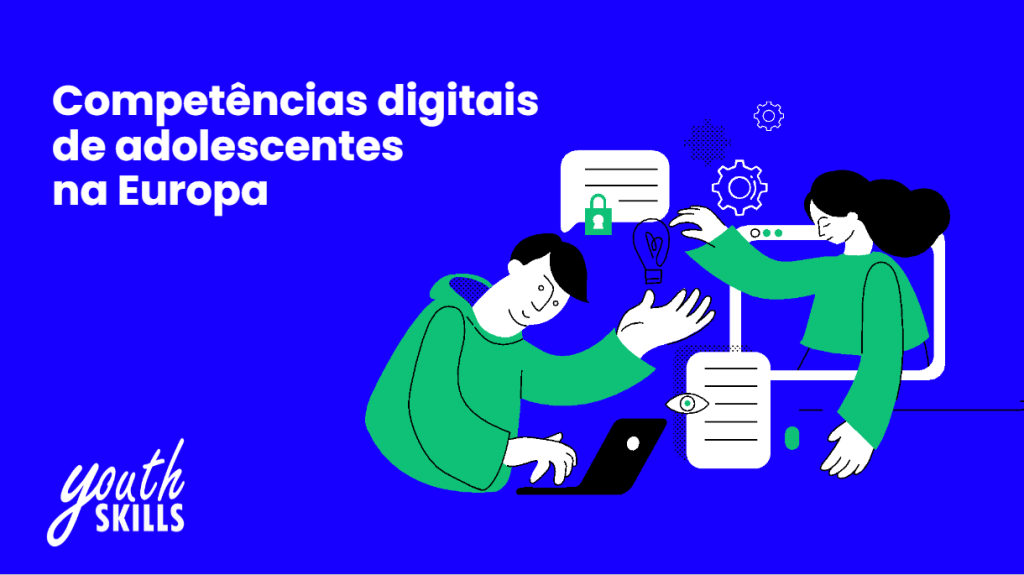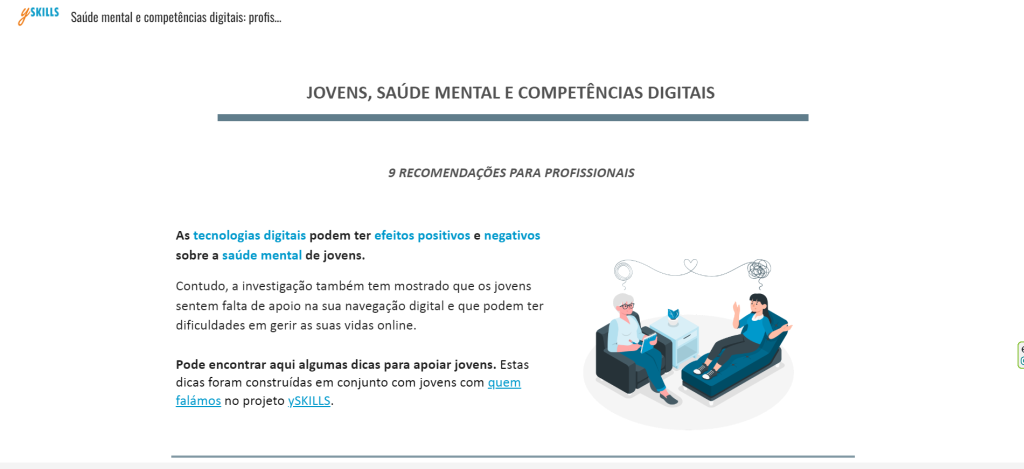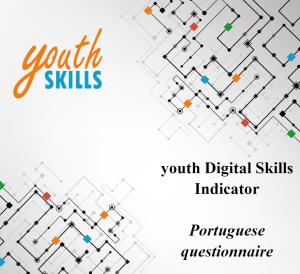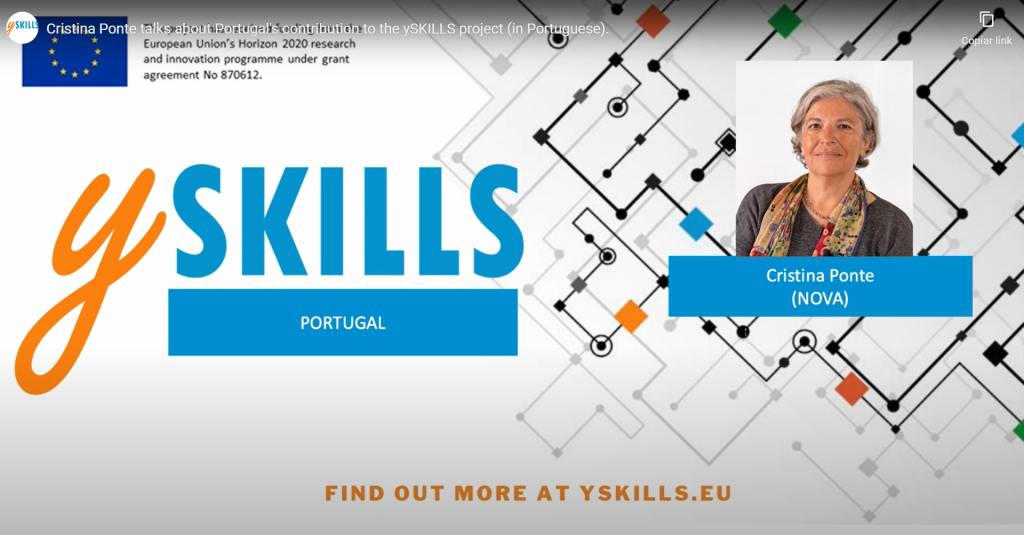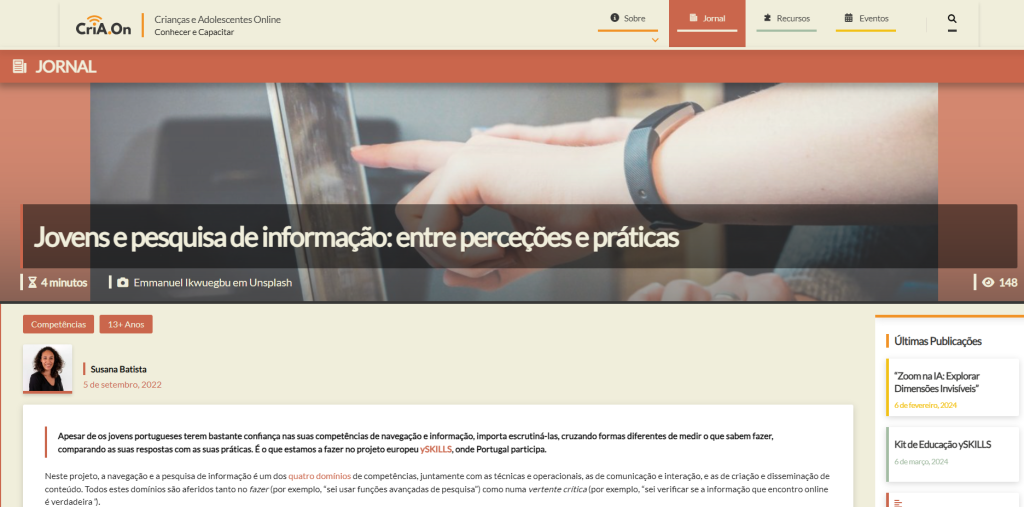Participating in this study was quite good. I reflected on the subject quite a lot too, because there were some things in it… you know, I had never thought about this specific skill, and I didn’t know what a digital skill was. I learned quite a bit about myself. And it is important that we understand how we can help to strengthen digital skills, to improve from now on.”
– Adolescent who participated in the study, 16 years old
The European project YSkills studied the digital skills of adolescents. Portugal took part in the longitudinal study (2021-2023) conducted in six countries on the evolution of those skills. Here you can find the report of the study, the educational toolkit and other resources available in Portuguese, below.
Resources
Infographic - Quiz at Futurália and Qualifica 2022
What do adolescents think of how the internet works? Results of the quiz led by young volunteers from the Portuguese Institute of Sport and Youth in the main education, jobs and training fairs in Portugal (Futurália and Qualifica).
Team
Cristina Ponte (Coord.)
ICNOVA
Susana Batista
CICS.NOVA
Rita Baptista
ICNOVA
Lídia Maropo
CICS.NOVA
Teresa Sofia Castro
CICANT
Platforms
Website
Engagement with society
- Participation in the Annual Report of the National Council of Education 2020/21.
- Short training for teachers to discuss and reflect on the results of the project.
- Participation in several webinars for teachers, scholars and students.
- Presentations of the results of the longitudinal survey in schools.
- Collaboration on the MOOC – Citizen Cybersocial with the National Cybersecurity Center.
- Collaboration with the Portuguese Institute of Sport and Youth in education, jobs and training fairs (Futurália and Qualifica).
- Hearing of Ukrainian adolescent refugees using the tool applied to the refugees in the qualitative study on digital vulnerabilities and skills (photo).
- Participation, with a workshop, in the European Safer Internet Day (Ponta Delgada, Azores).
Sustainable development
This project contributes to the achievement of 7 Sustainable Development Goals set out in the 2030 Agenda.
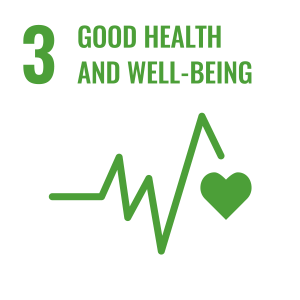
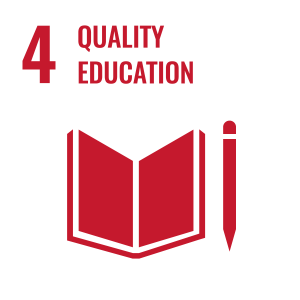
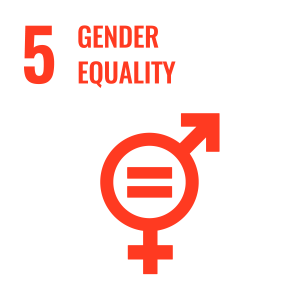
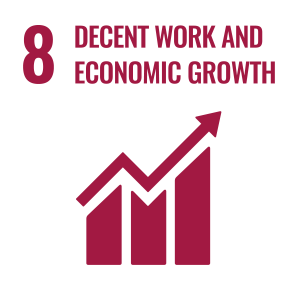
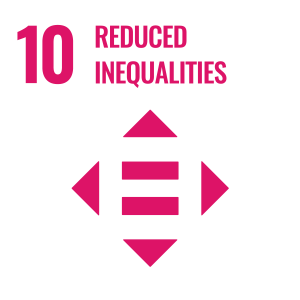
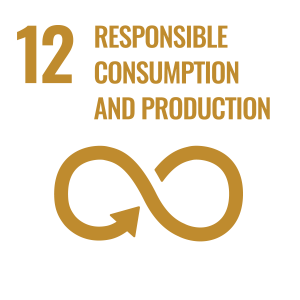
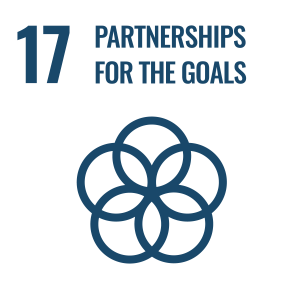
European Union Funding – H2020 – Reference – Research Innovation Program, Grant Agreement no. 870612.

